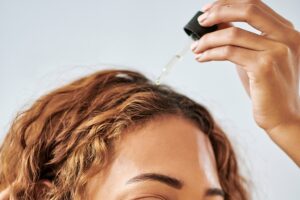Table of Contents
Natural Remedies to Get Rid of Dandruff and Maintain a Healthy Scalp
Dandruff is a common issue that many of us encounter at some point in our lives. While the sight of flakes on a dark shirt can be embarrassing, understanding and managing dandruff effectively can lead to healthier hair and a more confident appearance. This guide delves into the natural methods to alleviate dandruff and maintain a balanced scalp environment.

Natural Remedies to Get Rid of Dandruff and Maintain a Healthy Scalp
Understanding Dandruff
What Is Dandruff?
Dandruff is characterized by flaky, white dead skin cells that shed from the scalp. It affects about 50% of people globally, with factors ranging from dry skin and fungal infections to dietary habits. The most common underlying cause is an imbalance in the scalp’s natural environment, often due to yeast-like fungi, such as Malassezia.
Causes of Dandruff
Various factors contribute to dandruff, including:
- Dry Skin: Common during colder months, leading to more flakiness.
- Oily Skin (Seborrheic Dermatitis): Overly oily skin can also cause dandruff, characterized by greasy, flaky patches.
- Skin Conditions: Eczema and psoriasis may exacerbate dandruff due to severe dryness.
- Product Buildup: Frequent use of harsh hair products may irritate the scalp, causing itchiness and flakes.
- Fungal Growth: An overgrowth of Malassezia can irritate the scalp, increasing dead skin production.
Natural Ways to Treat Dandruff
Now that we know the root causes, let’s explore effective, natural remedies that not only tackle dandruff but also improve overall scalp health.
1. Stay Hydrated
Drinking water is essential for overall health, including the moisture level of your skin. Dehydration can exacerbate dryness, leading to dandruff. Aim to drink 8 glasses of water daily to support your skin’s hydration needs.
2. Coconut Oil
Coconut oil contains natural antimicrobial and antifungal properties that can effectively combat dandruff. Apply organic, unrefined coconut oil to your scalp, let it sit for an hour, then rinse thoroughly. This treatment can also be enhanced by adding essential oils like tea tree oil for extra antibacterial support.
3. Essential Oils
Certain essential oils like tea tree, rosemary, and lemongrass have been shown to fight fungal infections and soothe irritation. Mix a few drops of an essential oil with a carrier oil and gently massage it onto your scalp to alleviate dandruff symptoms.
4. Aloe Vera Gel
Known for its soothing properties, aloe vera can reduce scalp irritation and provide moisture. It’s particularly helpful for those with seborrheic dermatitis, a condition that often leads to dandruff. Apply fresh aloe vera gel directly to the scalp, leave it for 30 minutes, and rinse off.
5. Apple Cider Vinegar
Apple cider vinegar has antifungal properties that can help balance the scalp’s pH and reduce flakiness. Combine equal parts vinegar and water, apply to the scalp, and rinse after a few minutes. If irritation occurs, dilute the solution further.
6. Probiotics
Improving gut health with probiotics can also positively impact dandruff. Consuming probiotic-rich foods like yogurt or a high-quality supplement may reduce inflammation and support the scalp’s microbiome, potentially decreasing dandruff.
7. Omega-3 Fatty Acids
Omega-3 fatty acids found in foods like salmon and flaxseeds promote scalp hydration and reduce inflammation. Omega-3 supplementation may enhance skin health, providing relief from dandruff symptoms and boosting hair quality.
8. Glycerin-Based Products
Research shows that glycerin can improve scalp hydration, leading to a reduction in dandruff. Opt for leave-on products with a high concentration of glycerin to combat dryness and improve water barrier function in the scalp.
Additional Tips to Prevent Dandruff
Limit Chemical Exposure
Harsh shampoos often contain ingredients that irritate the scalp, leading to more dandruff. Look for gentle, sulfate-free shampoos and avoid overuse of styling products.
Maintain a Healthy Diet
A balanced diet rich in vitamins and minerals supports overall skin health. Try to reduce sugar and processed foods, as these can contribute to inflammation and worsen dandruff symptoms.
Manage Stress Levels
Stress is known to exacerbate skin conditions, including dandruff. Regular physical activity, meditation, and hobbies can help reduce stress and maintain scalp health.
Conclusion
Dandruff may be persistent, but with the right care, it can be effectively managed. Natural remedies like coconut oil, aloe vera, and essential oils offer powerful alternatives to harsh chemicals, promoting a healthier scalp. Remember, a combination of hydration, a balanced diet, and a stress-free lifestyle will support not only your scalp but your overall well-being.